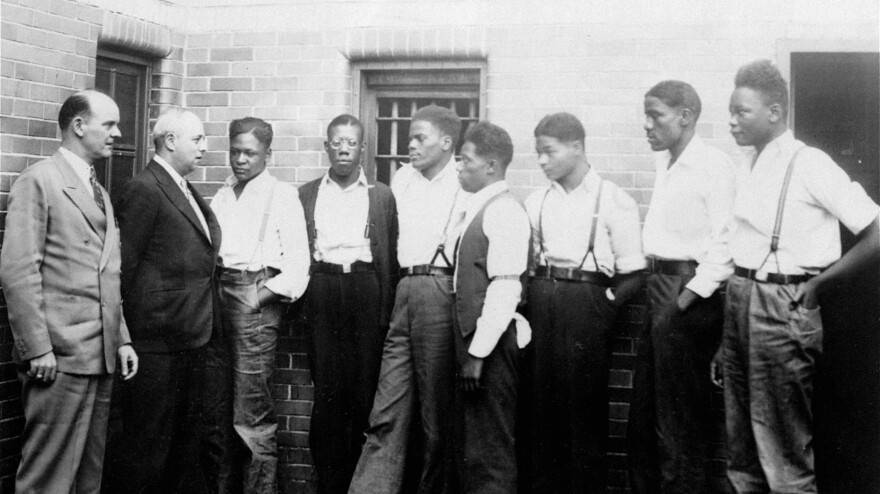"Today, the Scottsboro Boys have finally received justice."
That was Alabama Gov. Robert Bentley's reaction to a parole board's decision Thursday that brought an end to an eight-decade-old case that came to represent racial injustice in the Deep South.
The parole board unanimously approved a posthumous pardon for Haywood Patterson, Charlie Weems and Andy Wright — the three black men who weren't pardoned in the 1931 rape case.
The case centered on nine black males falsely accused of raping two white women on a train in northeast Alabama. All-white juries convicted the men; all but the youngest defendant got the death penalty.
"Five of the men's convictions were overturned in 1937 after one of the alleged victims recanted her story. One defendant, Clarence Norris, received a pardon before his death in 1976. At the time, he was the only Scottsboro Boy known to be alive. Nothing was done for the others because state law did not permit posthumous pardons."
In April, Alabama's Legislature passed a bill introduced by state Sen. Arthur Orr, a Republican from Decatur, to allow the state's parole board to issue posthumous pardons when convictions involved racial discrimination.
"It is a promising reminder of how far we have come as a state since those regretful days in our past," Orr said Thursday.
The AP notes that the Scottsboro Boys' appeals "resulted in U.S. Supreme Court rulings that criminal defendants are entitled to effective counsel and that blacks can't be systematically excluded from criminal juries."
The case has over the years also inspired books and films, as well as a Broadway musical.
Copyright 2021 NPR. To see more, visit https://www.npr.org.


